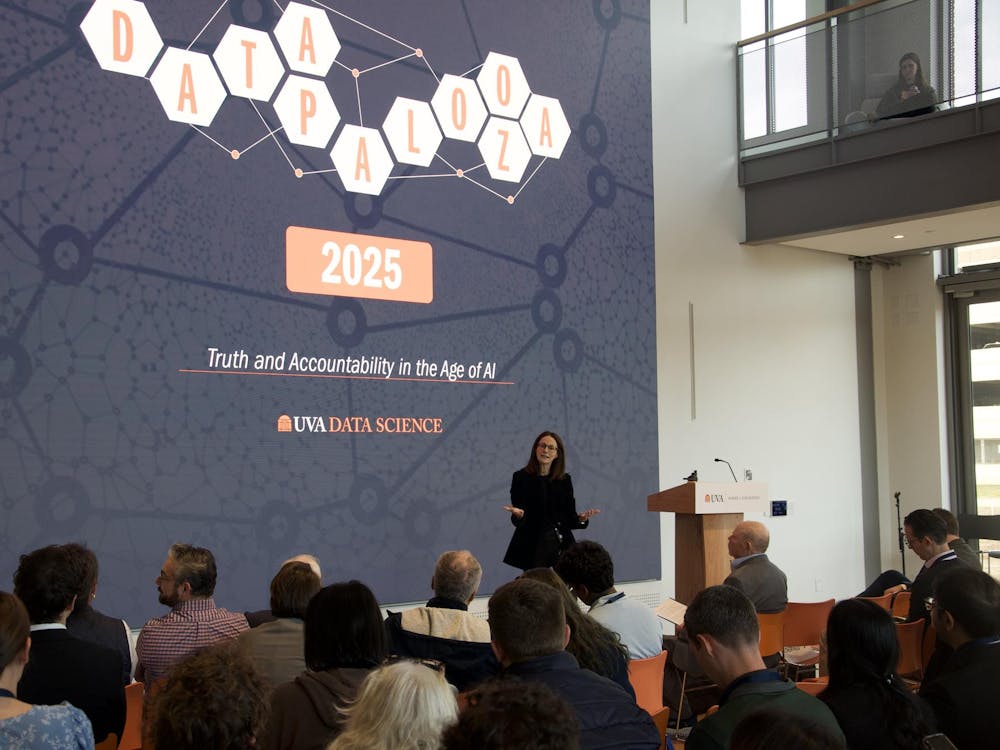Jeffrey Clark announced last Thursday that he has rescinded his offer to withdraw his candidacy from the fifth-district congressional election, in which he is running as an independent.
After the press reported Clark's extensive history of personal debt, the Tea Party member announced Aug. 30 that if the individual responsible for disclosing and compiling his personal financial data would step forward and take responsibility within two days, he would remove his candidacy.
Once the 48-hour deadline had passed, Clark withdrew this offer. He said the Tom Perriello campaign had told him it did not have any attachment to the compilation of the information. He has not yet, however, received a specific denial of the allegations from the Robert Hurt campaign.
Hurt Campaign spokesperson Amanda Henneberg said the Republican challenger will not "give credence to Clark's speculations and attacks," calling Clark's actions a "politically motivated sideshow" designed to detract attention from the authentic issues of the election.
Clark said he feels the information - including his filing for bankruptcy in 1993 and his history of personal debt extending into the late 1980s - was released with malicious intent. Nevertheless, Isaac Wood, communications director for the Center for Politics and a former Cavalier Daily opinion columnist, said revelations such as this are commonplace.
"This is not a new thing in politics," Wood said, noting that almost all congressional campaigns do "opposition research" with the intent to spread information such as past financial issues to the public.
Clark's announcement that he will continue his candidacy also does not come as a surprise, Wood said. He called Clark's actions a "political stunt," explaining that the likelihood of someone coming forward to confess was minimal.
Clark emphasized that his decision to drop out was never about surrendering but about fighting back. To elaborate on that message, he addressed the individuals responsible for leaking his data to the press. "Accept responsibility and let the people know the kind of politics that you believe in," he said.
As November draws near, Clark's candidacy could affect the race in two ways. Each scenario is dependent on the amount of discrepancy between the support that the Democratic and Republican camps amass on Election Day.
The presence of Clark, who identifies himself as a social and fiscal conservative, could certainly attract voters who would otherwise have voted for Hurt, but Clark noted that his campaign has received support from both conservatives and liberals who are tired of "career politicians" whose allegiance lies mainly with large special interest groups.
A Global Strategy Group poll released yesterday by the Democratic Congressional Campaign Committee showed that Clark has about 6 percent of participants' support, while Hurt and Perriello have about 44 and 42 percent. Clark said his campaign hopes to continue to strengthen this support, possibly even to 20 percent.
If voter turnout reflects poll numbers, the race will be a tight one. In such a case, Wood said, the boost that Clark's presence is expected to give to the Perriello campaign, however minimal, could result in a Democratic victory. Regardless, Wood said he believes Clark's impact could be less than significant because he is only expected to win a small percentage of the vote. If either of the major parties' candidates begins to display a convincing advantage, Wood said, the numbers that Clark wins will be trivial.
Whatever the final outcome, though, Clark's announcement to remain in the race is ultimately a "return to normalcy" for the election, Wood said.






